Fred Means
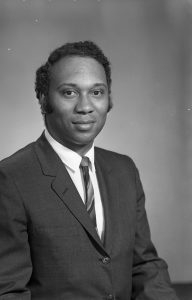
Fred E. Means was born in South Carolina and grew up in Newark, NJ. He graduated from Miller Street School and South Side High (now Malcolm X Shabazz). After spending three years in the Army, Means earned a Bachelor of Science degree from New York University, a Master of Arts degree from Trenton State College, and Master’s and Doctorate degrees in Education from Rutgers University.
Fred Means served in many civil rights organizations and boards in Newark, including CORE, the Business and Industrial Coordinating Council (BICC) and the United Community Corporation (UCC). The BICC was formed in response to demonstrations at the construction site of Barringer High School in 1963 to protest discrimination in hiring of African Americans in the building and construction trades. The Council was responsible for bringing together business and civil rights interests to encourage equality in hiring practices by the city’s major businesses. The UCC was Newark’s Community Action Agency funded by President Lyndon B. Johnson’s War on Poverty program. The UCC served as a training ground for political engagement by the city’s poor and working-class communities and was a major organization in promoting community empowerment.
Fred Means succeeded Raymond Proctor as the chairman of the Newark-Essex Chapter of the Congress of Racial Equality (CORE). As a member of CORE, he took part in a number of high-profile campaigns against discrimination in employment, housing, and education, as well as issues of police brutality. Means, along with Robert Curvin and Raymond Proctor, organized protests against discriminatory hiring practices of the New Jersey Bell Telephone Company in 1963 and conducted several training seminars on civil rights for NJ Bell’s management employees.
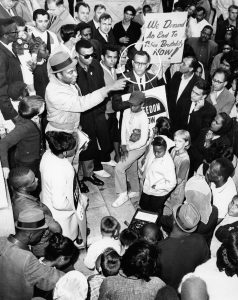
In 1965, as chairman of Newark-Essex CORE, Fred Means and national chairman James Farmer led a march in downtown Newark protesting against police brutality. The march was organized in response to the fatal shooting of Lester Long, an unarmed Black man, by Newark Policeman Henry Martinez. Means was one of the key organizers of community demands for a civilian review board in the wake of continued allegations of police misconduct and brutality in Newark.
In 1967, Means and other educators formed the Organization of Negro Educators (ONE). As the first president of ONE, Fred Means led the organization to protest the common practice of Black teachers being hired as substitutes and paid as much as $2,000 per year less than regularly-employed white teachers, only to be rehired the following school year. That year, Fred Means and ONE also supported Wilbur Parker for the highly contentious appointment of secretary to the Board of Education. In 1968, Newark had no Black principals, one Black vice principal, two Black assistant superintendents, and most of the Black teachers were substitutes.
In 1973, Mayor Ken Gibson appointed Fred Means to a three-year term as a member of the Newark Board of Education.
References:
Robert Curvin, Inside Newark: Decline, Rebellion, and the Search for Transformation
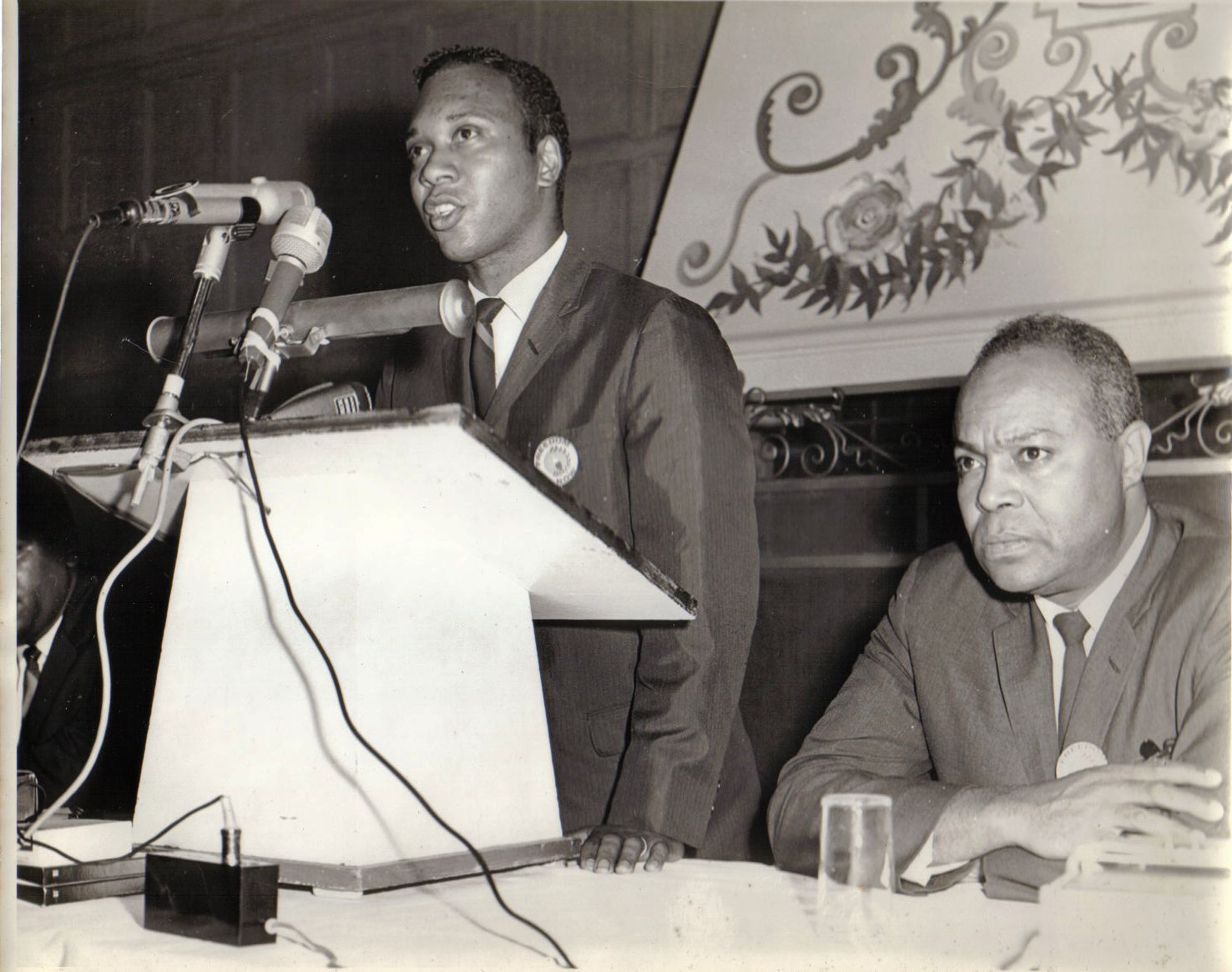
Fred Means addresses a press conference in response to the fatal shooting of Lester Long by Newark Police in 1965. At right is James Farmer, national chairman of CORE. — Credit: Fred Means Collection
Fred Means discusses the formation of Newark-Essex CORE during “The 1967 Newark Rebellion: Power and Politics, Before and After,” a two-day conference held in the Paul Robeson Campus Center at Rutgers University-Newark on October 1, 2016. –Credit: DreamPlay Media
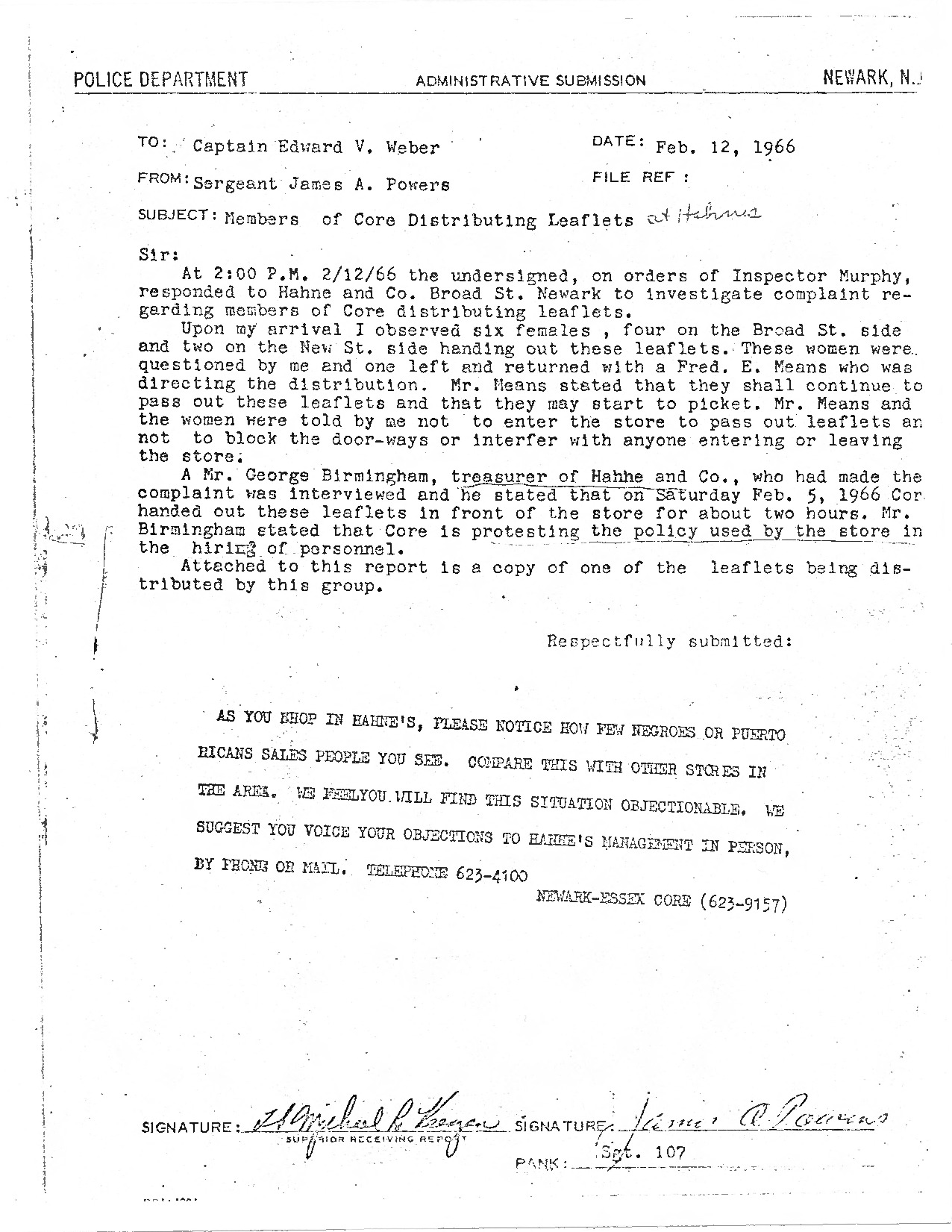
Newark Police report on CORE demonstrations at Hahne’s department store on Broad Street in 1966 to protest discrimination in hiring. — Credit: Junius Williams Collection
Explore The Archives
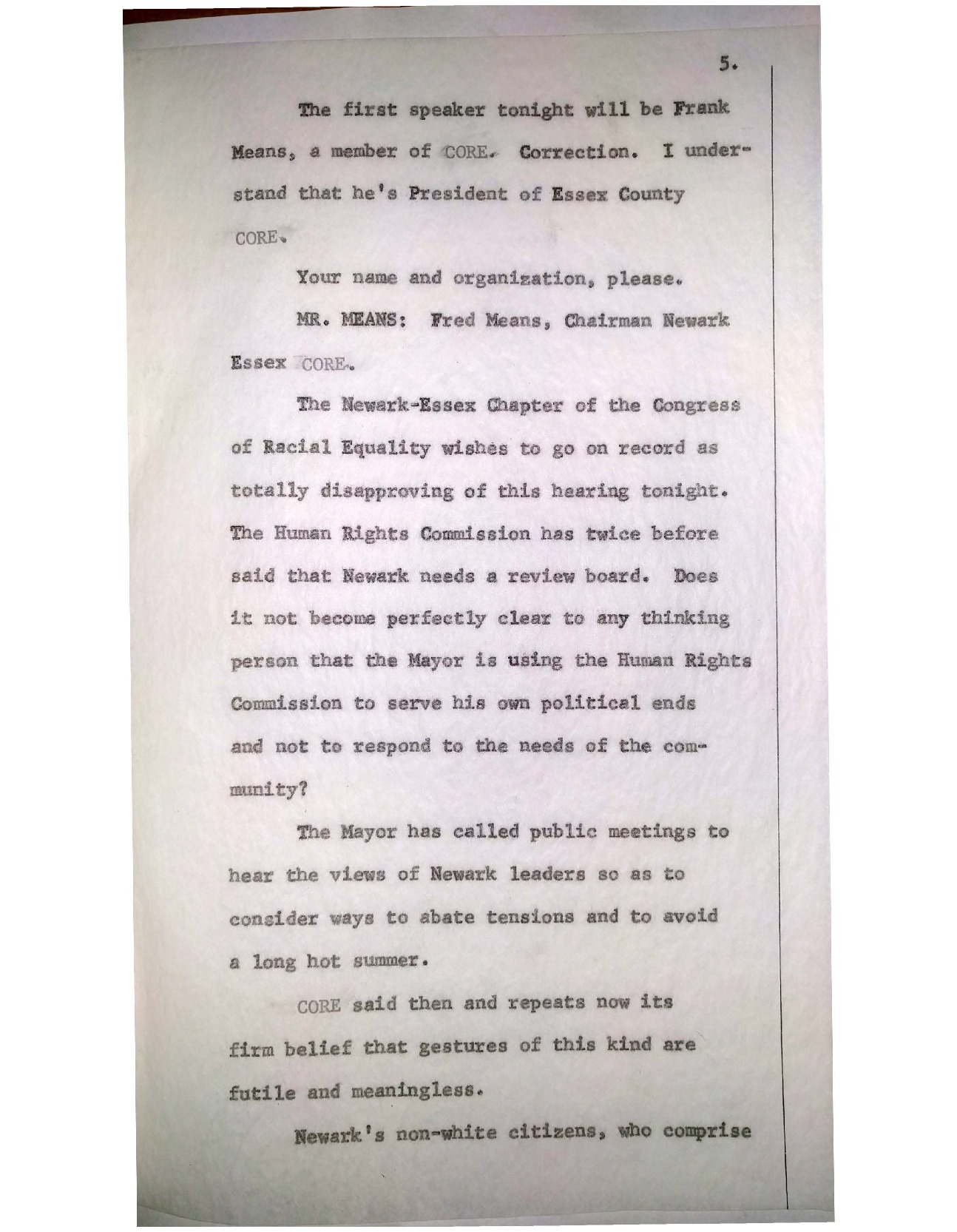
Transcript of statements made by Fred Means during hearings of the Newark Human Rights Commission in July, 1965 on a police review board. — Credit: City of Newark Archives and Records Management Center
Oral history interview with Fred Means, educator, civil rights activist, and former chair of the Newark-Essex Congress of Racial Equality (CORE), conducted by Robert Curvin on August 19, 2008. –Credit: The Estate of Robert Curvin
